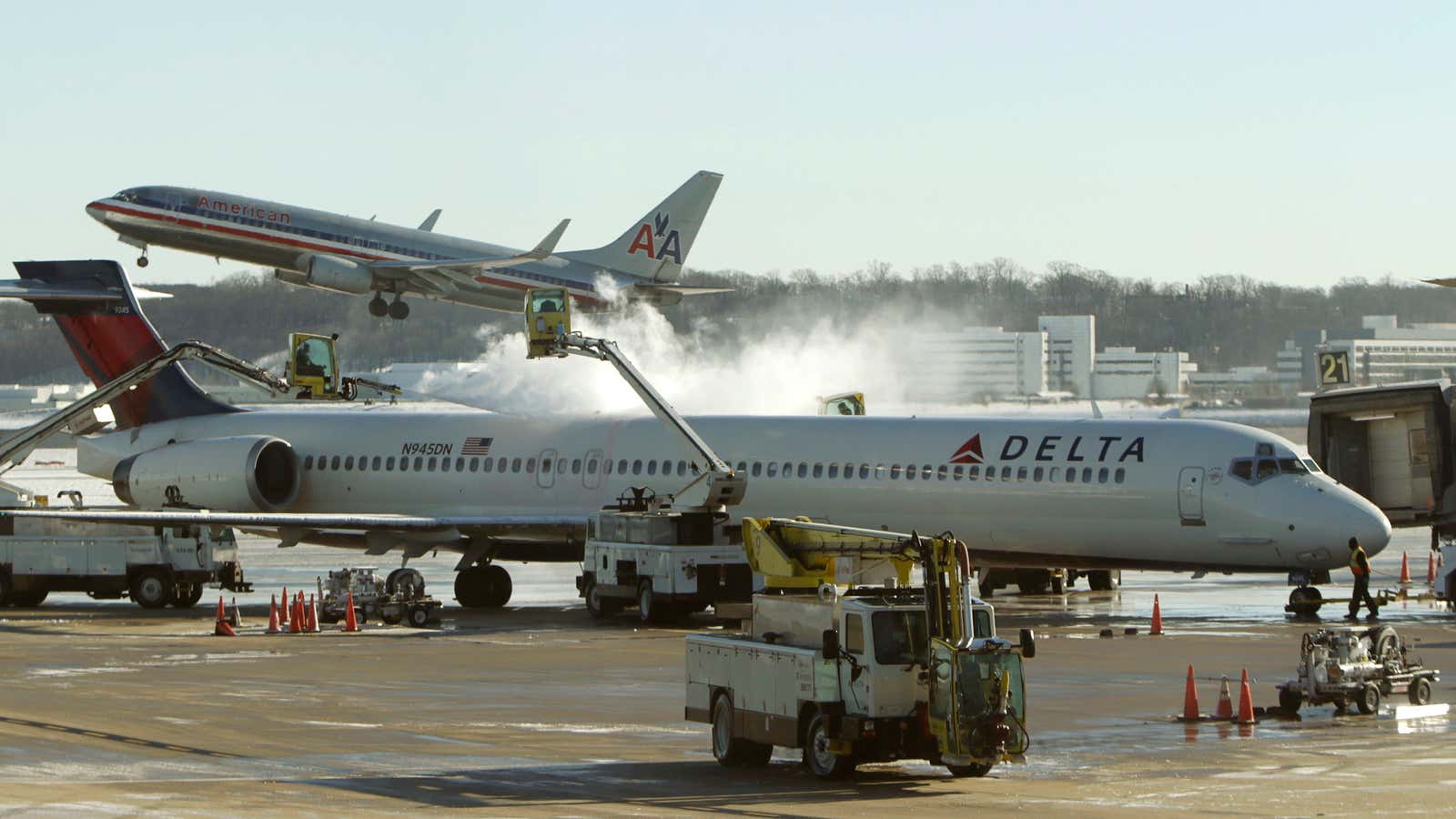A search for a plane ticket usually starts out as a quest for the lowest possible fare. But here’s a dirty little secret of the airline industry: The vast majority of people back away from choosing that option when faced with what it really entails, according to Delta.
It’s a pretty great time to be an airline. A wave of bankruptcy and consolidation has passed, and rock bottom fuel prices are leading to record profits, including for Delta, which recorded $1 billion in net income in its most recently completed quarter.
Even so, ultra low cost competitors like Spirit remain a threat to the big airlines. In response, Delta started offering a “basic economy” ticket in some markets, where it matches those low prices. (The airline launched the program in 2012 and has expanded it since then.)
The headline numbers look good, but there are a few strings: Seats are assigned at check in, you can’t change or refund a ticket close to the flight, and you can’t upgrade.
The company is finding that people are getting pulled in by the low fare, but most upgrade to a slightly higher tier that lets them pick their seat, Chief Revenue Officer Glen Hauenstein said on the company’s earnings call:
So what we’ve seen is a very high upsell rate from that. … When you look at that fare and then you’re presented with other options, 65% of the customers opt out of that fare.
Hauenstein gave an example of how things usually pan out:
If the lowest fare from Detroit to Orlando was $59 and that was a match of an existing Spirit fare, it was presented on delta.com that $59 gets you a product that is without a seat assignment. Most people are opting not to take that fare but to take the next higher fare, which is essentially an added-on price.
It ends up being a pretty solid source of incremental income for airline. It also helps prevent losing customers to the likes of Spirit, and does so without ultimately sacrificing too much on price.




